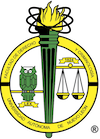The “rules as code” movement and the “og” model
about a space to improve in an accelerated way
DOI:
https://doi.org/10.29105/dj3.4-60Keywords:
COVID-19, rules as code, Informatic LawAbstract
COVID 19 has had an accelerating effect on society, from which the government sectors dedicated to the issuance of legal regulations (laws and administrative regulations) do not escape, trying to do it in a more agile and innovative way, taking into account the circumstances suffered. The Rules as Code movement occupies a place in this sense, with ongoing experiences in different countries and institutions, as well as expert people dedicated to the installation of new processes and multidisciplinary methods, converging in order to have official versions of the law, from the very moment the legal norm was born, but in language understandable and usable by machines. That is to say, a version in computer code, parallel to the traditional version in natural language, without having to go through intermediate interpretation and translation processes. The paper describes this movement and its alternatives, with a final focus on one of the exponents close to the author, the OG Model, with a promising future.
Downloads
References
AGESIC - “Open Fisca”. En https://www.gub.uy/agencia-gobierno-electronico- sociedad-informacion-conocimiento/politicas-y-gestion/openfisca. Última consulta: 23/05/2022.
BASU, Medha - “Four things you should know about Rules as Code. Inside a global movement to bring law and policy making into the digital world”. En https://govinsider.asia/inclusive-gov/four-things-you-should-know-about-rules-as-code/. Última consulta: 12/08/2022.
BAUZÁ REILLY, Marcelo – “La introducción de la Informática Jurídica en el ámbito parlamentario y en la Administración Pública”. II Congreso Iberoamericano de Informática y Derecho (Guatemala 1989). En Actas publicadas por el CREI y el Colegio de Abogados y Notarios de Guatemala el mismo año (Centro Regional del IBI para la Enseñanza de la Informática, págs. 221-225).
BUSINESS RULES GROUP – “Manifiesto de Reglas de Negocio. Los principios de la Independencia de las Reglas”. En https://www.businessrulesgroup.org/brmanifesto/BRManifiesto.pdf Última consulta: 23/05/2022.
DARABI, Anoush – “Nueva Zelanda explora leyes legibles por máquinas para transformar el gobierno”. En https://apolitical.co/solution-articles/es/nueva- zelanda-explora-leyes-legibles-por-maquina-para-transformar-el-gobierno. Última consulta: 23/05/2022.
ESCUELA EUROPEA DE EXCELENCIA – “Calidad total: definición y conceptos fundamentales” Entrada de 21 junio, 2022. En https://www.nueva-iso-9001-2015.com/2022/06/calidad-total-definicion-y-conceptos-fundamentales/. Última consulta: 12/08/2022.
GRUBER, T R – “Toward principles for the design of ontologies used for knowledge sharing” En International Journal Human-Computer Studies 43, p.907-928 https://tomgruber.org/writing/onto-design.pdf - DOI: https://doi.org/10.1006/ijhc.1995.1081
MERCATALI, Pietro – “Dodici anni di Legimatica. Da una parola a una disciplina”. En 23/05/2022.
MICHALSKI, Ryszard S. – “A Theory and a Methodology of Inductive Learning”. En http://ebot.gmu.edu/bitstream/handle/1920/1654/90- 43.pdf?sequence=1&isAllowed=y. Última consulta: 23/05/2022.
NEW SOUTH WALES GOVERNMENT – “Rules as Code – Test, Learn, Repeat” https://www.digital.nsw.gov.au/article/rules-code-test-learn-repeat. Última consulta: 23/05/2022.
NEW ZEALAND GOVERNMENT – “Better Rules for Government Discovery Report March 2018”. En https://www.digital.govt.nz/dmsdocument/95-better-rules-for- government-discovery-report/html. Última consulta: 23/05/2022.
OCDE - “Déchiffrer le code: L´elaboration de règles exècutables par les humains et par les machines”, James Mohun, Alex Roberts. Documents de travail de l´OCDE sur la gouvernance publique No. 42. Accesible en https://doi.org/10.1787/027bac0e-fr Se ha consultado la fuente en idioma francés, pero existe también una fuente del mismo texto en idioma inglés bajo el título “Cracking the Code: Rulemaking for humans and machines”, en https://www.oecd-ilibrary.org/docserver/3afe6ba5- en.pdf?expires=1653636334&id=id&accname=guest&checksum=5C1E86D1FAAA33F 05ED18F7C6E034240. Última consulta: 23/05/2022.
OPEN FISCA – “Open fisca, La plateforme Open Source qui modélise le code législatif en code informatique”. En https://fr.openfisca.org/. Última consulta: 23/05/2022.
PÉREZ, Chantal - “5.3.1 Definición de ontología como especificación del conocimiento” ISSN: 1139-8736 Depósito Legal: B-39120-2002 Copyright: © Chantal Pérez. En http://elies.rediris.es/elies18/531.html. Última consulta: 23/05/2022.
PERIS, Ramón – “Chatbot: ¿Qué es, para qué sirve y cómo funcionan?”. En https://bloo.media/blog/por-que-implementar-chatbot-en-tu-estrategia-de- marketing/#:~:text=De%20manera%20sencilla%20y%20comprensible,y%20ayuda ndo%20a%20los%20usuarios. Última consulta: 23/05/2022.
RAGGIO, Raúl A. - "Objetos de Gestion II. Diseño y Gestión de Procesos de Negocios, Ontología para Organizaciones Inteligentes", 1ra. Edición: Raggio, 2021. Ciudad Autónoma de Buenos Aires, Argentina. Accesible en https://www.academia.edu/44937878/OBJETOS_de_GESTION_II_Dise%C3%B1o_y_Gesti%C3%B3n_de_Procesos_de_Negocios_una_Ontolog%C3%ADa_para_Organizaciones_Inteligentes. Última consulta: 23/05/2022.
RAGGIO, Raúl A. y RUSSELL, Carlos A. - "Business Rules (BR); Expert Systems (KBS); LATC Algorithm. A proposal for functional integration", en International Journal of Scientific & Engineering Research Volume 12, Issue 1, January-2021 576 ISSN 2229-5518. Accesible en https://www.ijser.org/onlineResearchPaperViewer.aspx?Business-Rules-BR-Expert-Systems-KBS-LATC-Algorithm-A-proposal-for-functional-integration.pdf. Última consulta: 23/05/2022.
WADDINGTON, M. 2020. “Research Note. Rules as Code.” En Law in Context, 37 (1): 179-186, DOI: https://doi.org/10.26826/law-in-context.v37i1.134. Última consulta: 12/08/2022. DOI: https://doi.org/10.26826/law-in-context.v37i1.134
WONG, Meng Weng (HUANG Mingrong) - “Rules as Code: seven levels of digitization”. En Research Collection School of Law. Accesible en https://ink.library.smu.edu.sg/sol_research/3093/. Última consulta: 23/05/2022.
Downloads
Published
How to Cite
Issue
Section
License
Copyright (c) 2023 Journal of Legal Challenges

This work is licensed under a Creative Commons Attribution-NonCommercial 4.0 International License.
The authors who publish in this journal accept the following conditions:
- Authors will retain their copyright and guarantee the journal the right of first publication of their work, which will be simultaneously subject to the Creative Commons Attribution-NonCommercial 4.0 International License. That allows third parties to share the work as long as its author and its first publication are indicated in this magazine.
- Authors may make other independent and additional contractual agreements for the non-exclusive distribution of the version of the article published in this journal (eg, include it in an institutional repository or publish it in a book) provided that they clearly indicate that the work it was first published in this magazine.
- Authors are allowed and recommended to publish their work on the Internet (for example on institutional or personal pages) after the review and publication process, as it can lead to productive exchanges and a greater and faster dissemination of the published work ( See The effect of open access).







